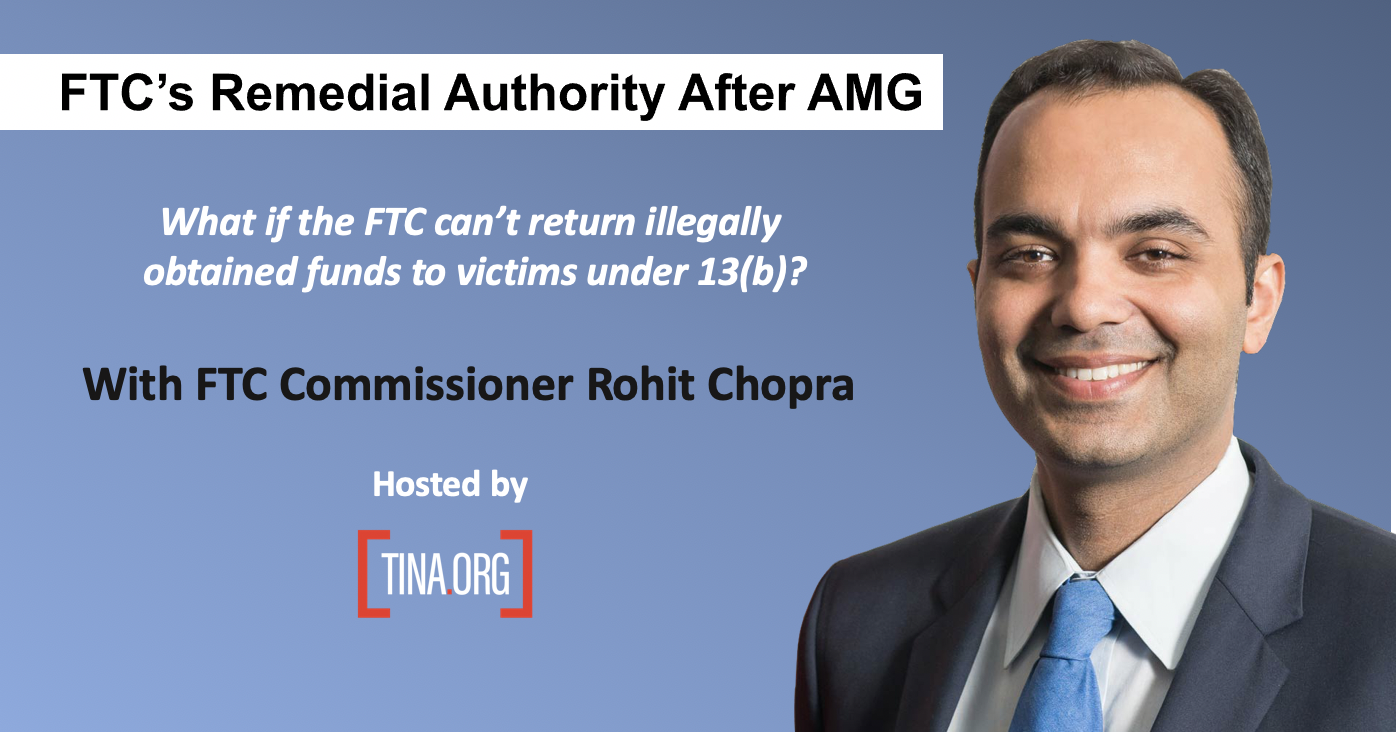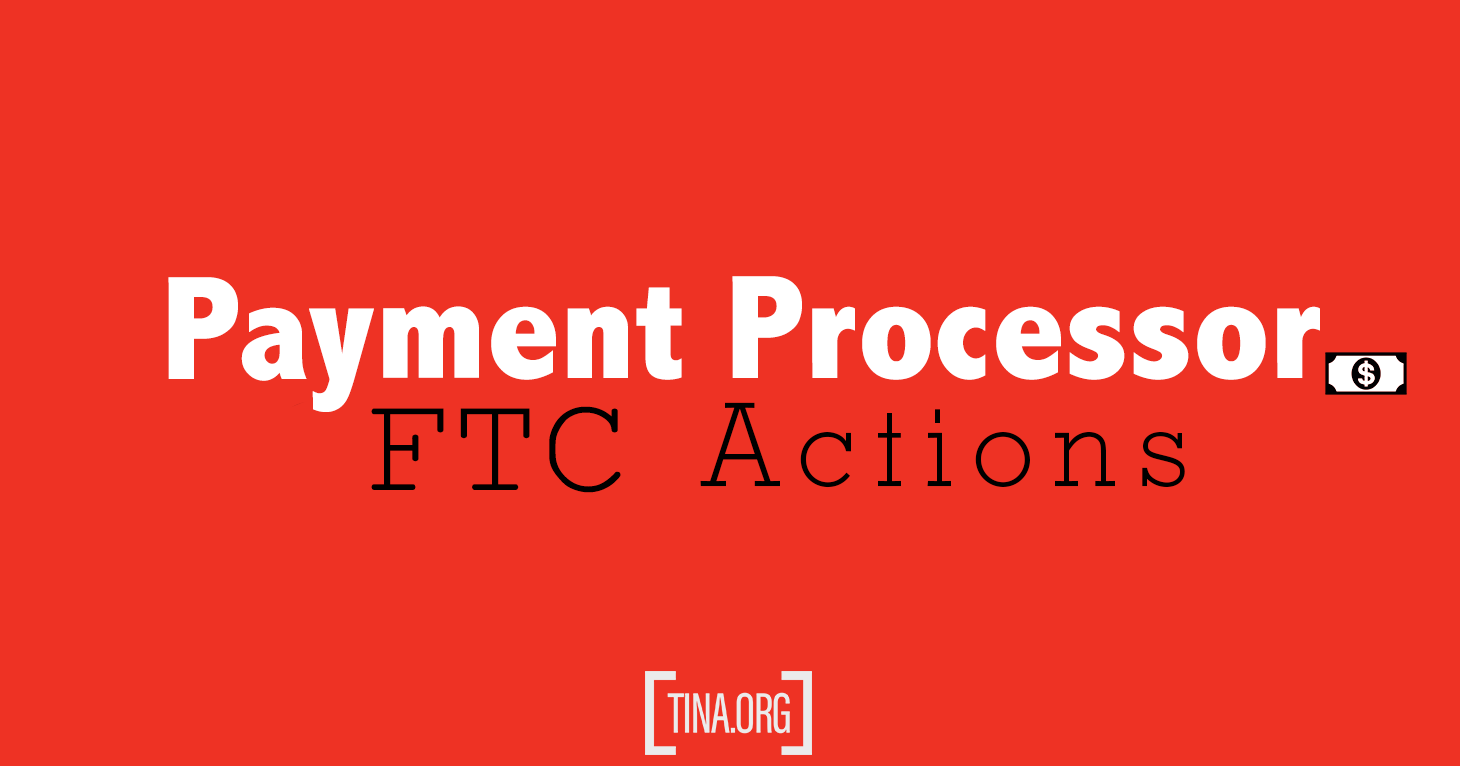
TINA.org Webinar: FTC’s Remedial Authority After AMG
In case you missed it, watch the webinar with FTC Commissioner Rohit Chopra.
New rule prohibits financial institutions from blocking consumers from pursuing class-action litigation.
Consumers wronged by their credit card company or student loan provider will finally have the chance to have their day in court under a new rule banning financial firms from imposing arbitration clauses that strip consumers of their right to pursue restitution as part of a class-action lawsuit.
The rule, adopted by the Consumer Financial Protection Bureau (CFPB) earlier this week, does not altogether forbid arbitration but rather its use as a tool to block consumers from banding together in group lawsuits. The CFPB said in a statement released Monday:
By forcing consumers to give up or go it alone — usually over small amounts — companies can sidestep the court system, avoid big refunds, and continue harmful practices. The CFPB’s new rule will deter wrongdoing by restoring consumers’ right to join together to pursue justice and relief through group lawsuits.
Frequently found in the fine print of contracts or terms and conditions agreements, arbitration clauses allow for disputes between consumers and companies to be settled by privately appointed individuals, or arbitrators, rather than through the courts. The CFPB says the scales of justice in this arrangement can be unfairly tilted toward the company.
“Often the harm to an individual consumer may be too small to make it practical to pursue litigation, even when the overall harm to consumers is significant,” the CFPB said when it proposed the rule in 2015. “In cases involving small injuries of anything less than a few thousand dollars, it can be difficult for a consumer to find a lawyer to handle their case.”
Many people aren’t even aware of the existence of arbitration clauses in their financial agreements, even though they are included in hundreds of millions of contracts in the financial products and services industry, the CFPB says.
In addition to prohibiting financial firms from blocking consumers from pursuing class-action litigation, the rule requires that companies submit to the CFPB certain records related to arbitration so that the agency can take a closer look to determine whether the process itself is fair.
See TINA.org’s continuing coverage of arbitration issues here.
In case you missed it, watch the webinar with FTC Commissioner Rohit Chopra.
A review of lawsuits the FTC has filed against companies and individuals that process credit and debit card transactions.
Researching a company shouldn’t be one-stop shopping.


